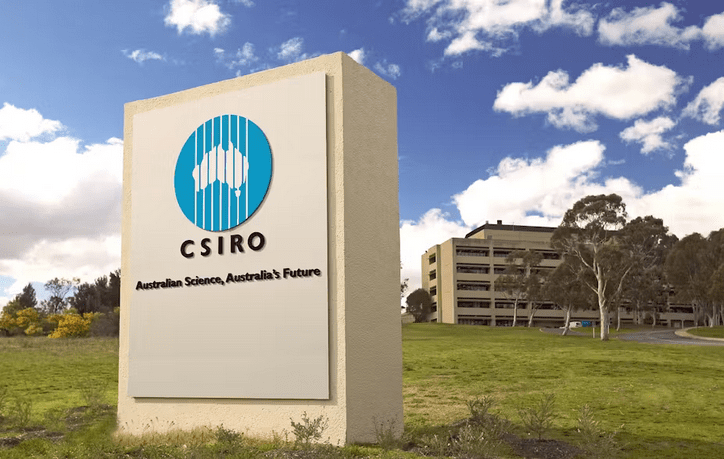Jobs
CSIRO to cut at least 30 Ag and Food division jobs – Grain Central

CSIRO has confirmed that at least 30 research jobs are on the chopping block from the agency’s Agriculture and Food division, as the organisation seeks to cut costs across the board.
These job cuts come alongside five more staff losses in the Manufacturing unit, 43 in the Health and Biosecurity team and an unspecified number from Enterprise Support Services, which features finance, human resource, business development, and commercialisation positions.
The CSIRO Staff Association has estimated that about 500 jobs across the agency could be cut out of a total workforce of 5000.
During Senate Estimates earlier this month, CSIRO chief executive Doug Hilton said the cuts were part of the agency assessing the capability across its units.
“Science changes and the capability that we have across all of our business units has to change with changing times,” Dr Hilton said.
Dr Hilton said consultations were ongoing, and no decision had been made about the number of job losses to the ESS team.
He also confirmed cuts to Agriculture and Food and Manufacturing would hit research staff.
“Science priorities change, national priorities change, and not all scientists have exactly the same skills.
“It is important to be able to refine the capabilities that we can deploy to the most important problems that the nation faces and there will always be a case for doing that in an ongoing manner.
“We want to make sure that we have the programs that we believe are going to be most impactful and that requires us to, overtime, change the mix of scientists we have.”
Independent Senator timDavid Pocock said the CSIRO job cuts were “clearly a funding issue at a time where we are at a record low research and development as a percentage of GDP”.
“Climate change is going to totally reshape our food system and yet we are hearing that we are losing researchers,” Mr Pocock said.
Assistant Minister for Trade and Assistant Minister for Manufacturing Senator Tim Ayres told Senate Estimates that the government was aware of the situation and had met with the CSIRO Staff Association.
He also highlighted that the CSIRO was “independent of government”.
“The statement of expectations that the Minister has issued to the CSIRO makes it very clear that all of the steps that you would expect to be undertaken to ensure staff are appropriately informed and consulted should be undertaken by the CSIRO,” Mr Ayres said.
Agency restructure
The job losses stem from a restructuring under way at CSIRO designed to streamline operations and cut costs of ESS by 25 percent by 2025-26.
Initially, staff were told the changes would by “limited”, but in April, Dr Hilton revealed jobs would be lost from ESS as well as researcher and scientist roles from other units.
This was followed by the news that several programs and services under the Health and Biosecurity division would be reduced or cut.
These include stopping clinical trial services at Westmead in Sydney, and the South Australian Health and Medical Research Institute, and decreasing or exiting research into nutrition capabilities, agriculture and food related pre-clinical analytical studies, and biomarker and molecular diagnostics.
In a letter to staff dated April 30, Agriculture and Food director Michael Robinson said the team had been “refining its priorities for future impact, while at the same time managing the workforce required against our budget”.
He said the positions would be impacted as the organisation looks to put more resources into areas “that focus on transformational science that effect step change within the agriculture and food sectors, as described in the Food Security and Quality Challenge”.
It is unclear which programs and staff will be impacted by the restructure.
The Food and Security Quality Challenge includes the goal of growing the “triple bottom line value of Australia’s agrifood and fibre industries” via developing high-value foods and feeds, sustainable and trusted value chains, and improved crops and animals.
Programs under the framework include the Drought Resilience Mission, the Future Protein Mission, Trusted Agrifood Mission and the Immune Resilience FSP.
CSIRO budget cuts
The foreshadowed job and program losses come as May’s Federal Government Budget allocated less funding for CSIRO than the previous financial year.
CSIRO is set to receive $1.653 billion in 2024-25 from government and external sources, down from the 2023-24 actual outcome of $1.679B.
In total, $916.46 million will come from government funds, compared to $686.67M from external sources, most of which will be the sale of goods and services.
This is a drop of over $90M on 2023-24 government allocations.
Employee expenses are also set to decline from 2023-24 and continue to reduce every financial year to 2027-28.
Despite the cut in expenses, CSIRO’s overall financial position is projected to have a bleak future.
In 2024-25, CSIRO is expected to report a profit of $213.4M, due primarily to the sale of assets equalling $262.3M, followed by losses for the three subsequent financial years of $62.6M, $54.3M and $39.4M.


)






